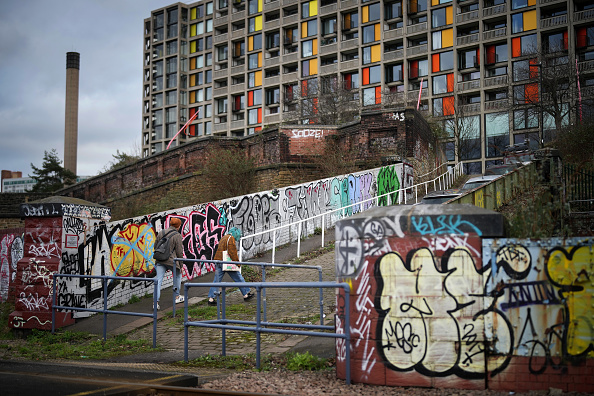Explainer-in-brief: Trust thy neighbour could be a lesson for Michael Gove

People who trust their neighbours tend to have better economic opportunities and social outcomes, according to a report for Onward. So where’s the most trusting parts of the country?
Do you trust your neighbours? It turns out the answer to this question doesn’t only depend on whether they blast Justin Bieber from their speakers at 4am on a Wednesday – I can assure you, not a pleasant experience – but also on where you live.
Different areas of the country have different levels of “social trust” – which basically means trust in those around you. The most trusting neighbourhood in England is Ecclesall in Sheffield, where 62 per cent of residents say they “always or usually trust others”, according to research by Onward out today. Lovely neighbourhood vibes – explained by the fact that Ecclesall is one of the least socially deprived neighbourhoods in the country, whose residents are mainly white and middle-class.
At the other end of the spectrum there’s Marsh Green in Wigan, in Greater Manchester. It’s the least trusting neighbourhood in England, where 66 per cent of residents say you “always or usually can’t be too careful”. In the 1930s, George Orwell wrote about the poor living conditions of the area’s working class – especially miners – in his book “The Road to Wigan Pier”. Marsh Green is still the most disadvantaged area in Wigan – whose “deprivation rate” is above the national average.
In our capital, the winner is the City of London, where again 62 per cent of residents say they trust others. Could this have anything to do with the fact that barely anyone lives in the City? The resident population is around 9,000 people – compare that to the 218,900 living in Barking and Dagenham. Easy to trust your neighbour, when you don’t have one.
Onward suggests we should start considering social trust as a yardstick of success – as it tends to lead to better economic and social outcomes. This might interest Levelling up secretary Michael Gove, with his obsession for “restoring local pride”.
It’s clear, though, that whether you trust or not largely depends on your circumstances – the wealth of your area, its level of privilege and crime rates. It’s no surprise that in a country where disparities are so strong, trust differs. And building it requires more than what the government has so far suggested. It’s less about local heritage and countryside views, and more about access to work, infrastructure and opportunities. In short, battling inequality is going to prove harder than yelling out the window to tell your neighbours Justin Bieber very 2010.